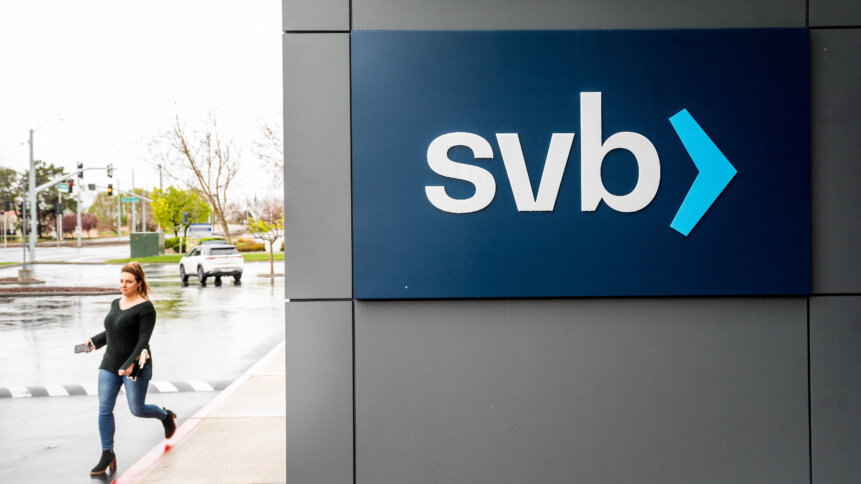Silicon Valley Bank collapses, sending startups and tech companies crumbling

Last week, Silicon Valley Bank–the go-to bank in the US for tech startups–collapsed. It faced a sudden bank run and capital crisis, and was eventually rendered insolvent, roiling global markets, with billions of dollars of deposits stranded. The second largest bank failure in US history, right behind Washington Mutual bank failure, was quickly followed by the closure of New York-based Signature Bank.
In total, three US banks have ceased operations, two in the last three days alone. The saga started late last Wednesday when Silicon Valley Bank surprised investors with news that it needed to raise US$2.25 billion to shore up its balance sheet. The move was unfortunately followed by the rapid collapse of the highly-respected bank that had grown alongside its technology clients.
“SVB was planning to raise US$2.25 billion across common shares, convertible preferred, and a commitment from General Atlantic in a deal run by Goldman Sachs Group Inc. to raise funds as technology startups facing a cash crunch yanked their funds,” Bloomberg reported. At the same time, customers were getting worried and began withdrawing their money, since the Federal Deposit Insurance Corporation only covers amounts up to US$250,000.
How it all started with Silicon Valley Bank
Everything was going well until the Federal Reserve Bank started aggressively raising interest rates over the past year to combat inflation. It caused the value of Silicon Valley Bank’s bond investments to plunge, as there were many other alternatives that allowed investors to buy short-term bonds or money markets for better yields.
Startup clients also started withdrawing deposits to keep their companies afloat in a chilly environment for IPOs and private fundraising. That was when Silicon Valley Bank found itself short on capital. With that, it had been forced to sell all of its available-for-sale bonds at a US$1.8 billion loss, the bank said late Wednesday.
The sudden need for fresh capital was sparked by another wave of deposit withdrawals a day after Silicon Valley Bank announced its fundraising plans. Venture Capitalists by then were concerned that Silicon Valley Bank could pose an existential threat to startups who couldn’t tap their deposits.
Unfortunately, by Thursday, March 9, the customers of Silicon Valley Bank had withdrawn a staggering US$42 billion, according to a California regulatory filing. The filing also noted that by the close of business that day, Silicon Valley Bank had a negative cash balance of US$958 million and needed more collateral from other sources. The bank’s shares continued to sink on Friday, after which it eventually ditched efforts to sell shares entirely.
Instead, Silicon Valley Bank started looking for a buyer, but the flight of deposits made the sale process harder, and that effort eventually failed too. The bank run ended when California regulators intervened, shutting the bank down and placing it in receivership under the Federal Deposit Insurance Corporation (FDIC). Many tech startups that were still with the bank were faced with an uncertain timeline in retrieving their money, while insured deposits are expected to be compensated as early as today.
Woefully, the lion’s share of deposits held by Silicon Valley Bank were uninsured, and so have no clarity on when they will be freed up. The bank’s latest annual report indicates that 96% of its US$173 billion deposits were uninsured. “The precipitous deposit withdrawal has caused the bank to be incapable of paying its obligations as they come due,” the California financial regulator stated. “The bank is now insolvent.”
The price clients of Silicon Valley Bank are paying
Since the fiasco broke out, tech leaders and investors worldwide have been engulfed and scrambling to assess the potential ramifications, considering the tech industry has always relied heavily on US capital to supercharge growth. Even governments around the world have been taking swift action.
For instance, the US government on Sunday night took extraordinary steps to stop a potential banking crisis by assuring all depositors. The Treasury Department, Federal Reserve, and FDIC announced measures to protect the bank’s customers and prevent additional bank runs. Under the plan, depositors at Silicon Valley Bank and Signature Bank, including those whose holdings exceed the US$250,000 insurance limit, can access their money from today onwards.
Elsewhere, companies from various countries have also been knee-deep in the bank’s collapse. In the UK, according to The Independent, a survey of 31 venture capital funds, which hold thousands of investments in UK tech and science firms, found that 34% of their portfolio companies – amounting to 336 – have accounts with the Silicon Valley bank.
More than 200 of those now face short or long-term cash flow risk, The Independent added, citing data from BVCA – the industry body representing venture capital investors. By Monday morning, HSBC had announced a rescue deal for Silicon Valley’s UK operations. “I said yesterday that we would look after our tech sector, and we have worked urgently to deliver that promise,” Chancellor Jeremy Hunt tweeted.
Essentially, the move by HSBC is a massive relief for tech companies, who feared an ‘existential threat’ to their businesses if they lost their funds at Silicon Valley Bank UK. The Bank of England highlighted that the deal with HSBC means the SVB UK will not now be put into insolvency. Meanwhile, in Asia, India’s state minister for technology said over the weekend that he would meet startups this week to assess the impact of Silicon Valley Bank’s collapse on them.
Rajeev Chandrasekhar tweeted that startups are an essential part of New India’s economy, and he assured them that the government would not let the crisis affect the growth of Indian startups. Separately, Y Combinator, an American technology startup accelerator that has invested in thousands of startups, including 200 from India, wrote a petition to the US authorities.
The startup accelerator has some level of exposure to the troubled bank, so it wrote to the US Treasury Secretary Janet Yellen and others, stating that further shockwaves could lead to a financial crisis and layoffs of more than 1,00,000 workers and asked them to prevent it. The petition, written by Garry Tan, CEO and President of Y Combinator, has already been signed by over 1,200 CEOs and founders, representing more than 56,000 workers.
Tan, in the document, said that the startups would fail to have the cash to run payroll in the next 30 days. “By that measure, we can estimate that payroll-related furlough or shutdown will impact more than 10,000 small businesses and startups,” Tan added. Silicon Valley Bank, in total, has an estimated 37,000 small businesses with more than US$250,000 in deposits, according to the National Venture Capital Association (NVCA) data.
The petition said: “These balances are now unavailable to them, and without further intervention, according to the FDIC website, may be inaccessible for months to years.”










